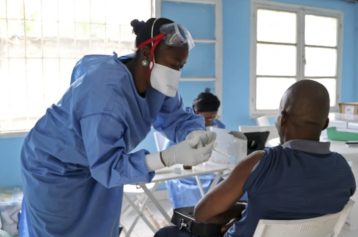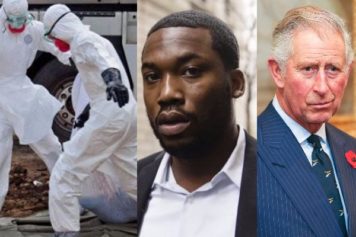In response to growing international scrutiny over the decision to administer a new Ebola “miracle” drug to two white Americans while hundreds of Africans continue to die, the World Health Organization is seeking help from medical ethicists to determine how experimental drugs should be administered going forward.
“We are in an unusual situation in this outbreak. We have a disease with a high fatality rate without any proven treatment or vaccine,” Marie-Paule Kieny, assistant director-general at the WHO, said in a statement issued Thursday. “We need to ask the medical ethicists to give us guidance on what the responsible thing to do is.”
There hasn’t yet been an exact date or place announced for next week’s meeting with the medical ethicists, according to Al Jazeera America. Following the statement, the WHO declared that the Ebola outbreak constituted an international public health emergency.
The WHO’s concerns come a day after three of the world’s leading experts on the devastating disease released a joint statement asking why the experimental drug that appears to have miraculously cured two white Americans has not been offered to African patients.
Peter Piot, director of the London School of Hygiene and Tropical Medicine, who discovered Ebola in 1976; David Heymann of the Chatham House Centre on Global Health Security; and Jeremy Farrar of the Wellcome Trust, all said that Africans infected by Ebola should get the same chance as the Americans to be cured.
“African governments should be allowed to make informed decisions about whether or not to use these products – for example, to protect and treat health care workers who run especially high risks of infection,” they wrote in a joint statement.
Ebola has been diagnosed in 1,600 people and killed more than 900 in Liberia, Sierra Leone and Guinea. It has so far killed about 60 percent of those infected.
A report in The New York Times said the U.S. government also is in the process of forming a group to consider the same issues.
President Barack Obama said Thursday that it was too early to decide whether the experimental drug ZMapp, which appeared to cure the American doctor Kent Brantly and missionary Nancy Writebol, could be distributed in Africa.
Obama said that during his summit with African leaders earlier this week they decided to establish an African version of the American Centers for Disease Control and Prevention.
Referring to the WHO, the three Ebola experts said it was “the only body with the necessary international authority” to allow such experimental treatments, and that it “must take on this greater leadership role.”
“These dire circumstances call for a more robust international response,” they said.
The experts said if Ebola had been raging though wealthy countries, medical agencies “would begin discussions with companies and labs developing these products and then make rapid decisions about which of them might be appropriate for compassionate use.”
“Experimental treatments shouldn’t be rolled out generally without prior safety testing,” they said in a statement that was issued in London on Tuesday evening. ”But in the face of the critical challenge in West Africa, the WHO and Western medical agencies should be helping countries weigh the risks and benefits of limited deployment of the best (drug and vaccine) candidates to those in the greatest need, while continuously monitoring safety and efficacy.”
Nigerian health minister Onyebuchi Chukwu told the media he had asked the CDC about access to ZMapp. Liberia reportedly has asked as well.
Liberia’s circumstances are particularly devastating as health workers have stopped showing up for work for fear of contracting the disease, according to Al Jazeera America, and people infected with Ebola have reportedly been turned away from hospitals.
There was a protest in Monrovia earlier this week to call attention to infected bodies being left in the streets.
“They should have started quarantining entire areas months ago,” Robert Garry, who is an expert in viral pathogens at Tulane University and has worked extensively in West Africa, told Al Jazeera. “But it’s spread all over, so you’re essentially talking about quarantining entire countries if you want to contain it.”
Salim S. Abdool Karim, director of Caprisa, an AIDS research center in South Africa, told The New York Times that although many will criticize the decision to first give the experimental drug to the Americans, there may have been suspicions raised if they had tried it first on Africans, given the history of Western companies conducting secret drug tests on Africans.
“It would have been the front-page screaming headline: Africans used as guinea pigs for American drug company’s medicine,” Karim said.


